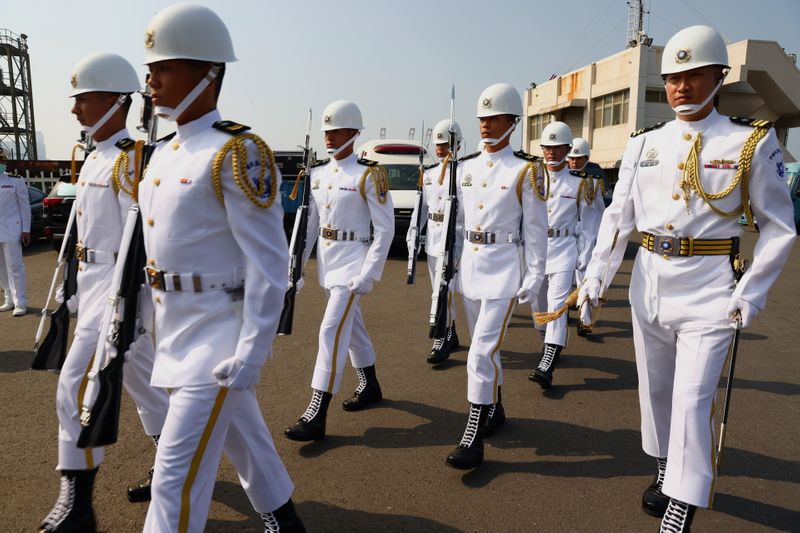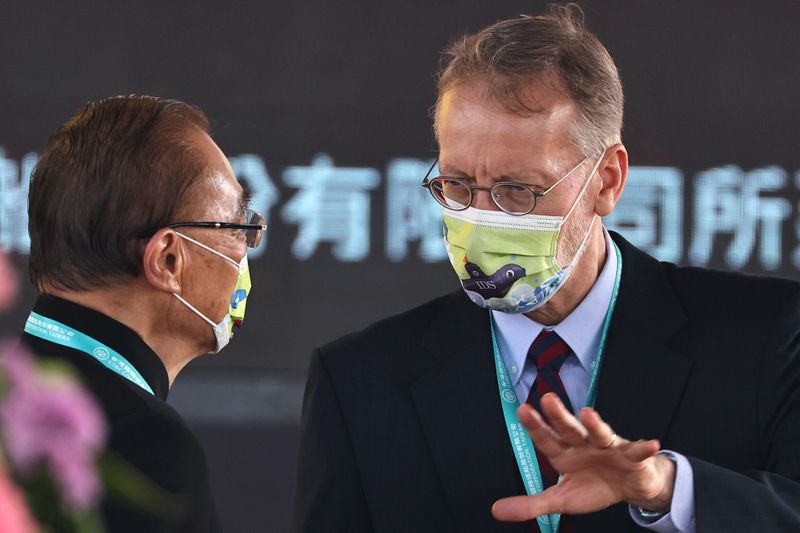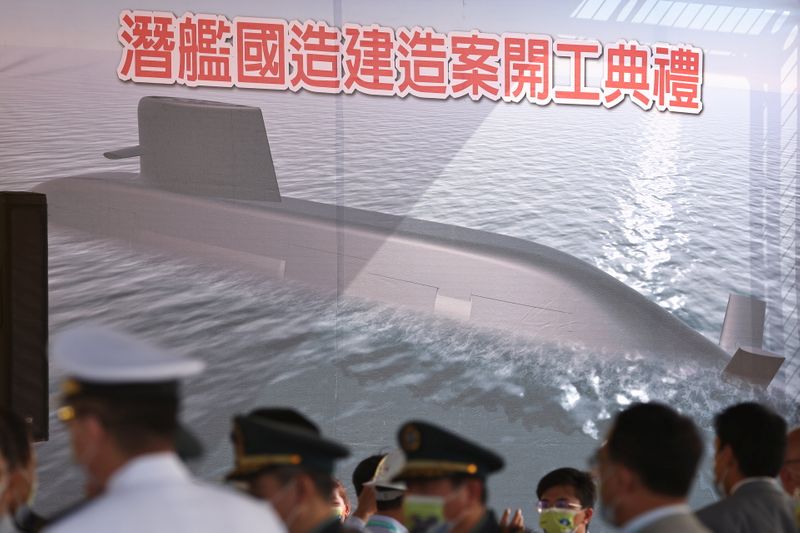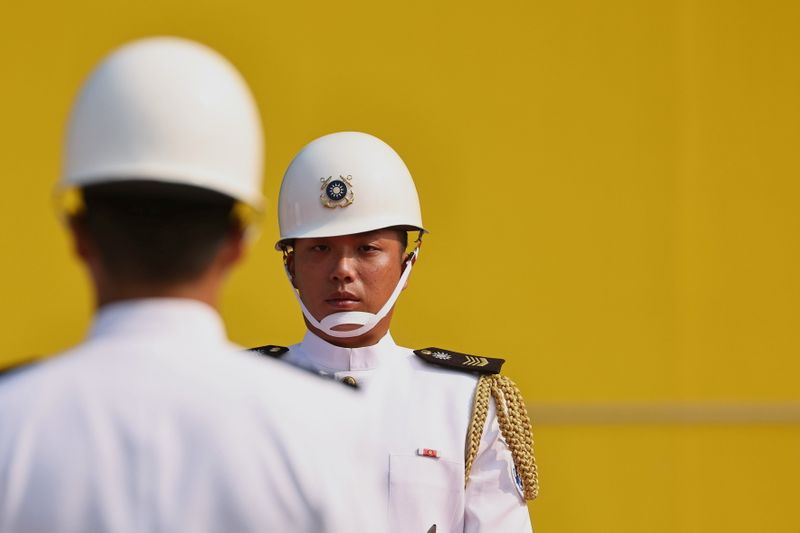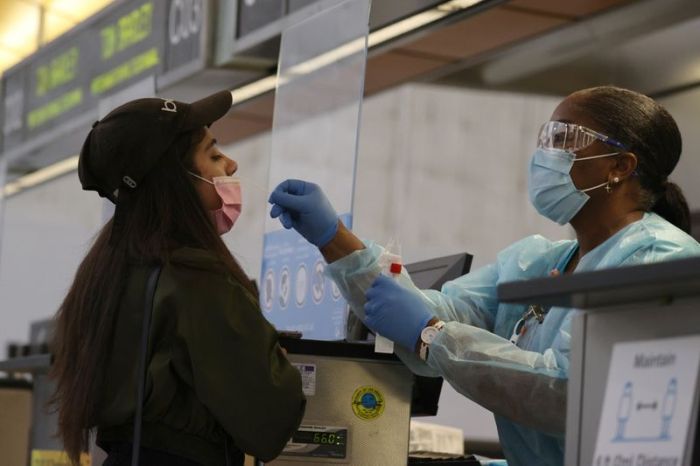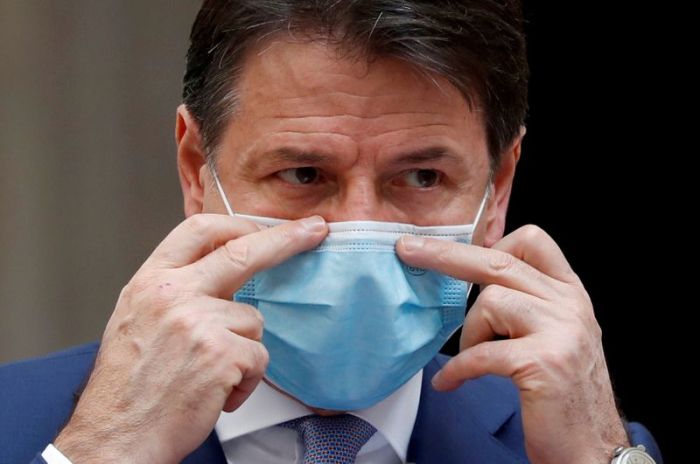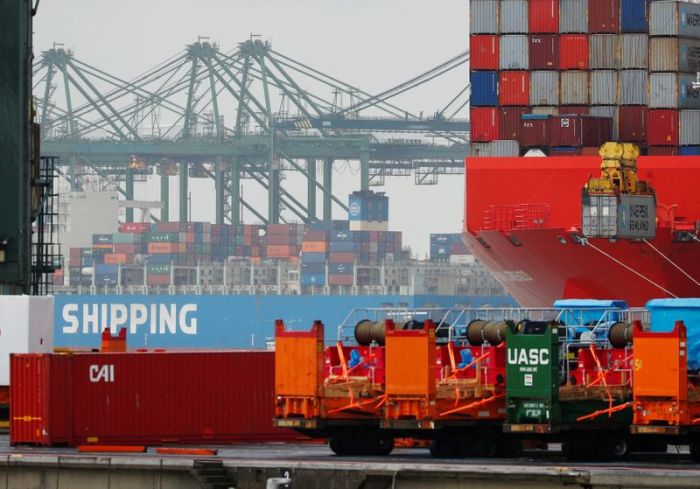KAOHSIUNG, Taiwan (Reuters) – Taiwan President Tsai Ing-wen on Tuesday vowed to defend the democratic island’s sovereignty with the construction of a new fleet of domestically-developed submarines, a key project supported by the United States to counter neighbouring China.
Taiwan, which China claims as its own territory, has been for years working to revamp its submarine force, some of which date back to World War Two, and is no match for China’s fleet, which includes vessels capable of launching nuclear weapons.
At a ceremony to mark the start of construction of a new submarine fleet in the southern port city of Kaohsiung, Tsai called the move a “historic milestone” for Taiwan’s defensive capabilities after overcoming “various challenges and doubts”.
“The construction demonstrates Taiwan’s strong will to the world to protect its sovereignty,” she told the event, which was also attended by the de facto U.S. ambassador in Taiwan, Brent Christensen.
“Submarines are important equipment for the development of Taiwan’s navy’s asymmetric warfare capabilities and to deter enemy ships from encircling Taiwan.”
The U.S. government in 2018 gave the green light for U.S. manufacturers to participate in the programme, a move widely seen as helping Taiwan secure major components, though it is unclear which U.S. companies are involved.
State-backed CSBC Corporation Taiwan said it would deliver the first of the eight planned submarines in 2025, giving a major boost to Tsai’s military modernisation and self-sufficiency plan.
Company chairman Cheng Wen-lung said they had faced major challenges, including difficulty procuring parts as well as “external forces hindering the development of this programme”.
Taiwan’s armed forces are mostly equipped by the United States, but Tsai has made development of an advanced home-grown defence industry a priority.
In June, Tsai oversaw the first public test flight of a new locally designed and made advanced jet trainer.
Chinese forces have ramped up their military activities near Taiwan, on occasion flying fighter jets across the unofficial buffer median line of the sensitive Taiwan Strait.
(Reporting By Ann Wang; Writing By Yimou Lee; Editing by Michael Perry)

